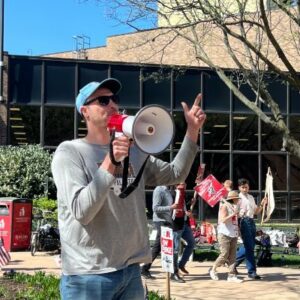
CURE’s Next Chapter, by Dr. Stephen Danley


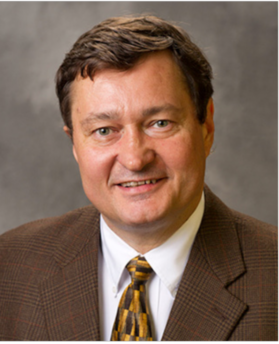
After 12 years as Director of the Center for Urban Research and Education (CURE), I am stepping down and turning over the leadership of the Center to Associate Professor Stephen Danley. Professor Danley, a noted urban scholar whose research focuses on social engagement and community development, has deep ties to the Camden community. I am very excited to watch CURE continue to grow and develop under his leader- ship. In anticipation of this new birth of CURE, it is useful to revisit the Center’s first 12 years serving the Rutgers-Camden campus and the Camden community.
In 2011, under the leadership of Executive Dean Margaret Marsh and Chancellor Wendell Pritchett, Rutgers University – Camden established the Center for Urban Research and Education. I was delighted and honored to come to Rutgers-Camden to be the founding director of CURE. Rutgers-Camden is an ideal set- ting for a center that bridges academic research with outreach to an economically challenged urban community. Camden, NJ, is one of the poorest cities in the United States, situated within the poorest major metropolitan area. Yet both Camden and the Greater Philadelphia Region have enormous potential, underutilized resources, and enthusiastic and engaged citizens.
CURE has several complimentary missions. First, CURE fosters a community of urban scholars across the campus that transcends academic departments and disciplinary backgrounds. Second, CURE promotes and facilitates new and interesting urban research by Rutgers-Camden faculty and students. Third, CURE builds links between the university and its community by partner- ing with government agencies, non-profit organizations, and community groups.
CURE has hosted memorable seminars, academic conferences, research projects, and publications. We have sought out emerging urban scholars, particularly from underrepresented groups, and promoted their work within Rutgers and beyond. We have also funded student research and conference attendance to help train the next generation of urban scholars. As CURE enters its second decade, this report looks back on some highlights of the first 12 years. We look forward to building on these accomplishments and invite you to join us as we seek to bring research to bear on problems and opportunities in urban America.
CURE’s successful program of research and public events were the result of the hard work of many people. I was fortunate to have Natasha Fletcher serving as Associate Director for most of the first ten years. More recently, Public Affairs graduate student Sarah DeGiorgis has been invaluable at keeping CURE functioning. Many Rutgers-Camden faculty have played important roles, as have many graduate students. In the same spirit, I am committed to helping income Director Stephen Danley in any way that I can as he takes the helm. Onward!
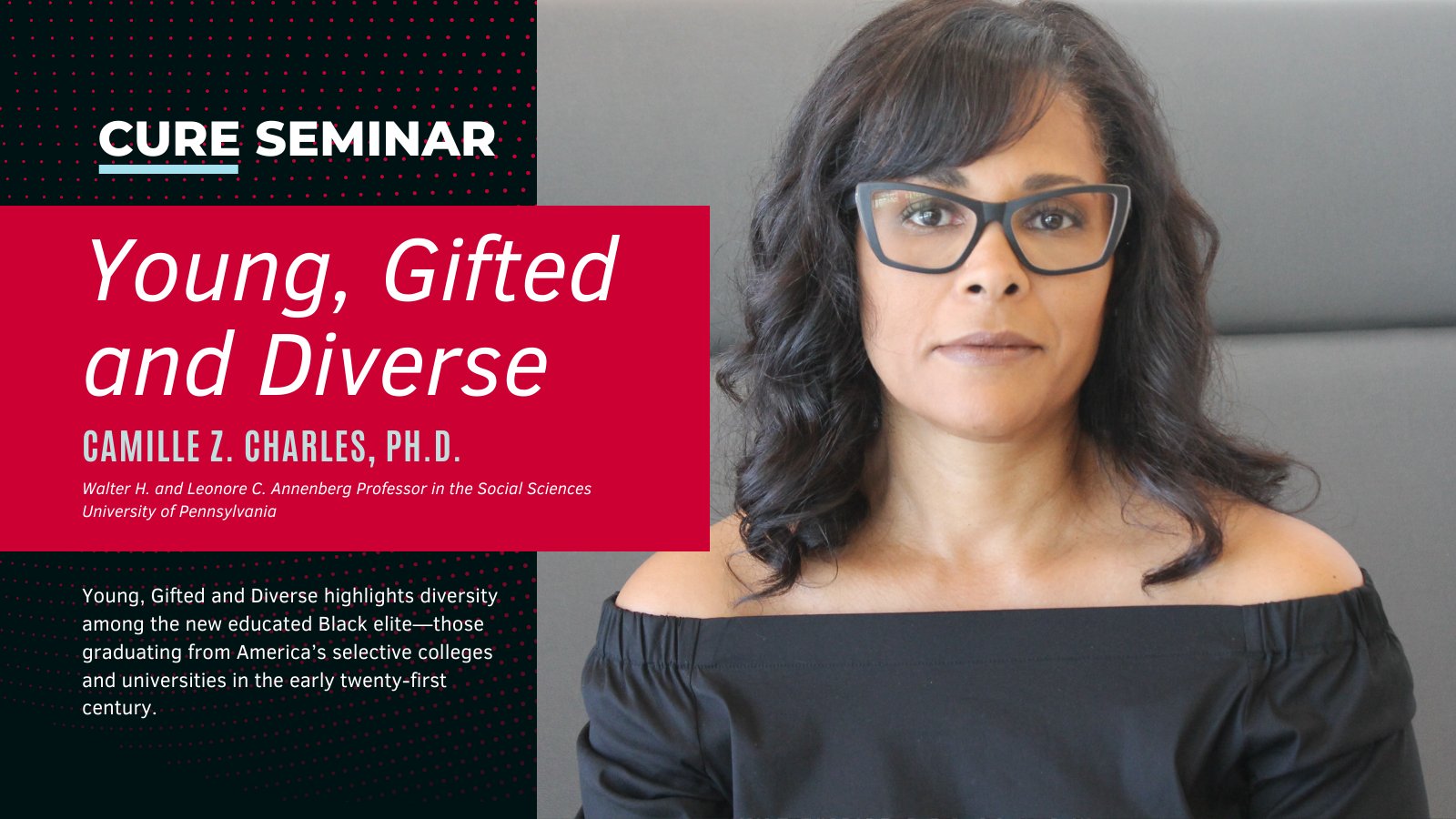
This event has been canceled until further notice.
Despite their diversity, Black Americans have long been studied as a uniformly disadvantaged group. Drawing from a representative sample of over a thousand Black students and in-depth interviews and focus groups with over one hundred more, Young, Gifted and Diverse highlights diversity among the new educated Black elite—those graduating from America’s selective colleges and universities in the early twenty-first century.
Differences in childhood experiences shape this generation, including their racial and other social identities and attitudes, and beliefs about and interactions with one another. While those in the new Black elite come from myriad backgrounds and have varied views on American racism, as they progress through college and toward the Black professional class they develop a shared worldview and group consciousness. They graduate with optimism about their own futures, but remain guarded about racial equality more broadly. This internal diversity alongside political consensus among the elite complicates assumptions about both a monolithic Black experience and the future of Black political solidarity.
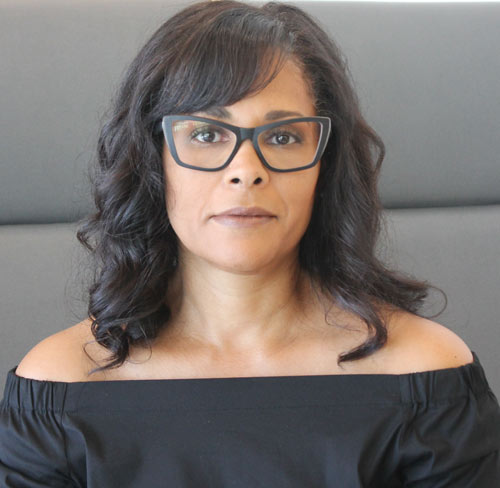 Camille Z. Charles is Walter H. and Leonore C. Annenberg Professor in the Social Sciences in the Departments of Sociology and Africana Studies, and in the Graduate School of Education at the University of Pennsylvania. Her research interests are in the areas of racial inequality, racial identity, racial attitudes, intergroup relations, residential segregation, and higher education.
Camille Z. Charles is Walter H. and Leonore C. Annenberg Professor in the Social Sciences in the Departments of Sociology and Africana Studies, and in the Graduate School of Education at the University of Pennsylvania. Her research interests are in the areas of racial inequality, racial identity, racial attitudes, intergroup relations, residential segregation, and higher education.
Professor Charles currently serves as Chair of the Department of Africana Studies, and as Interim Director of the Center for Africana Studies. In addition to these roles, she is also Faculty Co-Director of Penn First Plus, the University’s initiative to support first-generation, low-income Penn students. And, since 2006 she has served as Director of the Center for Africana Studies Summer Institute for Pre-Freshmen.
She is author of Won’t You Be My Neighbor: Race, Class and Residence in Los Angeles, which explores explanations for persisting residential segregation by race, and co-author of The Source of the River: The Social Origins of Freshmen at America’s Selective Colleges and Universities and Taming the River: Negotiating the Academic, Financial, and Social Currents in Selective Colleges and Universities, each based research from The National Longitudinal Survey of Freshmen (NLSF), an effort to understand racial differences in the experience of elite higher education in the United States. Most recently, she is co-author of the forthcoming book, Young, Gifted, and Diverse: Origins of the New Black Elite, which employs a mixed-methods approach and an intersectional framework to explore the varied and multiple dimensions of diversity among Black students in elite higher education. Professor Charles earned her Ph.D. in at the University of California, Los Angeles in 1996.
South Korean cities face many of the same problems that American cities have experienced in the past. The problems of increasing heterogeneity in urban composition, poverty and inequality between classes, gentrification, transportation, and housing are challenges that cities in both countries need to solve. South Korea faces additional challenges with excessive concentration of people and economic power in the Seoul Metro and extremely low fertility rates. Without balanced national development to address these issues, Korea’s national competitiveness is likely to decline.
Creating equitable and just communities and maintaining safe and healthy homes are two sides of the same coin. Hundreds of thousands of homes across Pennsylvania have moderate to severe physical inadequacies, including leaky roofs or windows, inadequate wiring, unreliable heat, or the lack of a flushing toilet. This deferred maintenance endangers the health of the home’s residents, including through exposure to mold, lead, and extreme temperatures in the winter and summer. The climate crisis, causing Pennsylvania to become increasingly hotter and wetter, exacerbates the deterioration of our homes by exposing them to conditions they were never intended to withstand, simultaneously burdening residents with crushing utility bills.
This program reinforces the adage that “the most affordable home is the one you already have.” It also speaks to the belief in the preservation community that preserving a home is about more than saving a building and keeping its occupants healthy; it is about preserving cultural memory and the character of neighborhoods and cities.
The Whole-Home Repairs Program won because of bipartisan support in both chambers of the Pennsylvania General Assembly, champions at all levels of government, and grassroots support from practitioners, advocates, community organizations, and residents across the state, revealing that rural and urban communities alike are engaged in a shared struggle against the detrimental effects of blight, abandonment, vacancy, and displacement, and the accompanying community-wide harms that this cycle triggers.
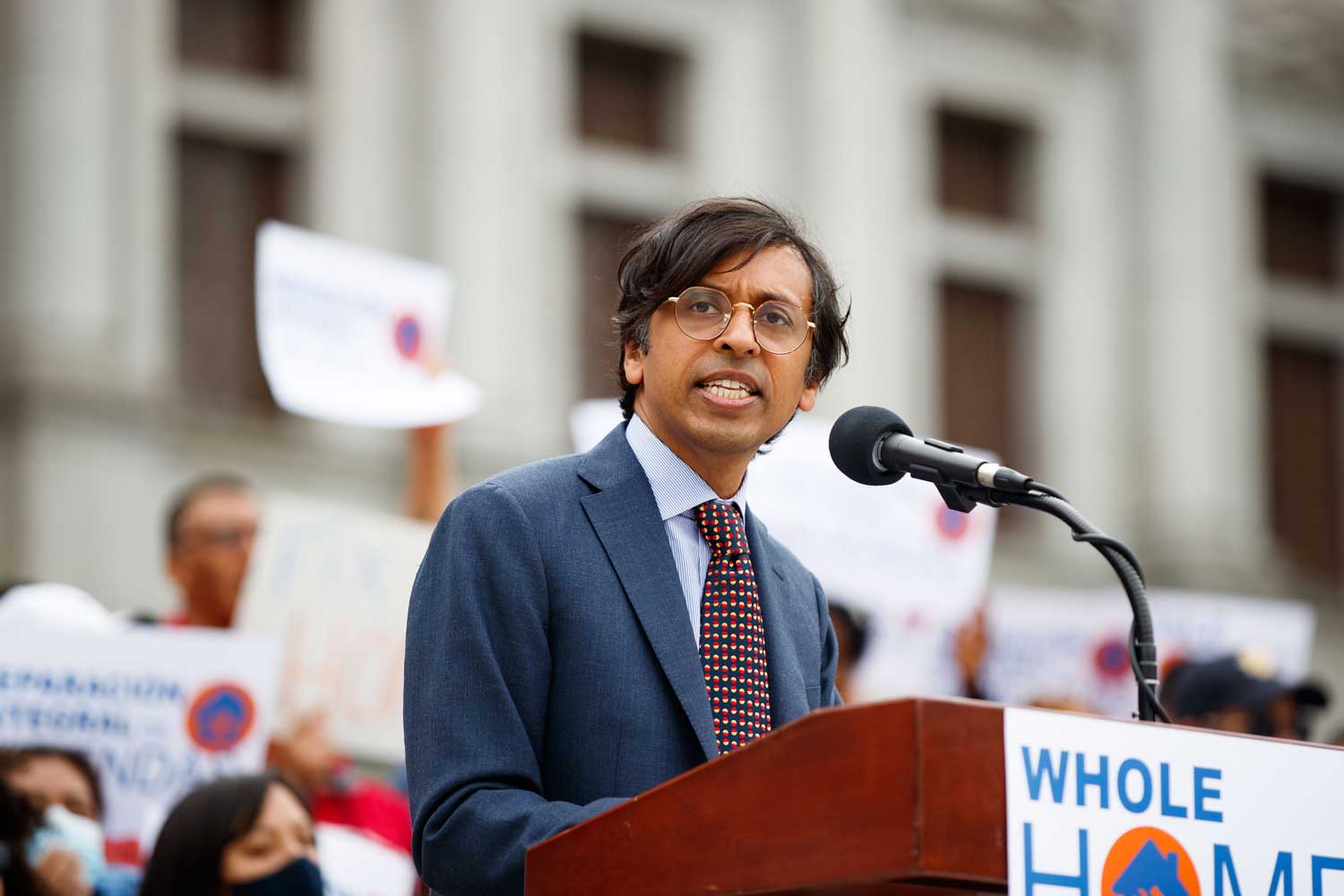
Senator Nikil Saval represents the First Senate District in the Pennsylvania legislature, where he serves as Democratic Chair of the Senate’s Urban Affairs & Housing Committee. Saval’s legislative work is focused on addressing Pennsylvania’s ongoing housing, mass incarceration, wage, and climate crises, while simultaneously pushing for structural change. His office led the creation of the Whole-Home Repairs Program, which establishes a one-stop shop for home repairs and weatherization, and which was adopted by the legislature in July.